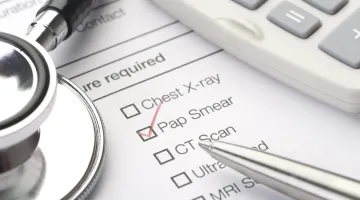Urinary Incontinence in Women: Don't Suffer in Silence
Author

Gerry R. Campos, MD
Female urinary incontinence (leakage of urine that is difficult to control) is not something that is often talked about, yet many women deal with it every day. The effects—or fear of the effects—can have a harmful impact on your day-to-day activities. For example, a funny joke could lead to an accident while you are out to dinner with friends. Or you intentionally avoid long car trips because you are afraid that you won’t be close enough to a restroom. Or maybe you are fed up with waking up three times a night to go to the restroom. All of these issues can leave you feeling self-conscious and isolated because you think you are the only woman dealing with this issue. You are not.
In reality, urinary incontinence is an incredibly common problem that affects 30 to 40 percent of all women—many of whom suffer in silence because they are embarrassed to speak with their doctor or believe that urinary incontinence is something that they need to simply accept as part of their lives. This could not be further from the truth! In fact, there is an entire subspecialty called urogynecology that focuses on the treatment of issues related to the pelvic floor and bladder, including urinary incontinence.
The good news is that urinary incontinence is highly treatable. Your options will depend on the type of incontinence and the root of the problem. The two main types of urinary incontinence in women are stress incontinence and urge incontinence. It is not unusual for a woman to have both (so called mixed urinary incontinence).
- Stress incontinence is leakage occurring in response to pressure placed on the bladder when you laugh, sneeze, cough or exercise. The main cause of stress incontinence is weakening or stretching of a layer of tissue that normally supports the urethra (the tube that drains the bladder). Weakening of that tissue can occur due to various events such as childbirth and chronic strenuous activity. Genetics also plays a role. Stress incontinence is usually experienced as a spurt of urine.
- Urge incontinence, also known as overactive bladder, occurs when the bladder muscle involuntarily contracts and causes a sudden urge to urinate. That is associated with frequent urination and, in many women, incontinence that can be of a soaking nature. Normally the bladder does not contract until you sit on the toilet to void. For many women with urge incontinence, there is no obvious cause. However, it can occur with people that suffer from other bladder issues (bladder falling or prolapsing), neurological disorders, diabetes, and other conditions.
After speaking with your doctor, he or she will work with you to determine the best course of treatment. Depending on the type and severity of the incontinence, treatment options can include:
- Exercises to strengthen the pelvic floor muscles (both types of incontinence)
- Bladder training (urge incontinence)
- Medication to prevent the bladder muscles from contracting (urge incontinence)
- Interventional therapies to treat the nerves in the bladder (urge incontinence)
- Botox injection into the bladder (urge incontinence)
- Pessaries to support the urethra (stress incontinence)
- Physical therapy with a pelvic floor specialist (both types of incontinence)
- Surgical procedures to repair the pelvic floor muscles and increase bladder support (stress incontinence)
Women come to see me after years of dealing with urinary incontinence. They relate how the incontinence has significantly affected their daily lives. If you think you have an issue, do not hesitate to mention it to your primary care provider. You have nothing to be embarrassed about and they can refer you to a specialist (like myself) that can help. The sooner you speak up, the sooner you can start treating the problem.
Dr. Gerry R. Campos is a board-certified urogynecologist (specialist in female pelvic medicine and reconstructive surgery) at The Women’s Center of South Shore Medical Center. He is currently accepting new patients. To make an appointment to see Dr. Campos, please call 781-682-8000 or talk to your primary care physician about getting a referral.
Author

Gerry R. Campos, MD






